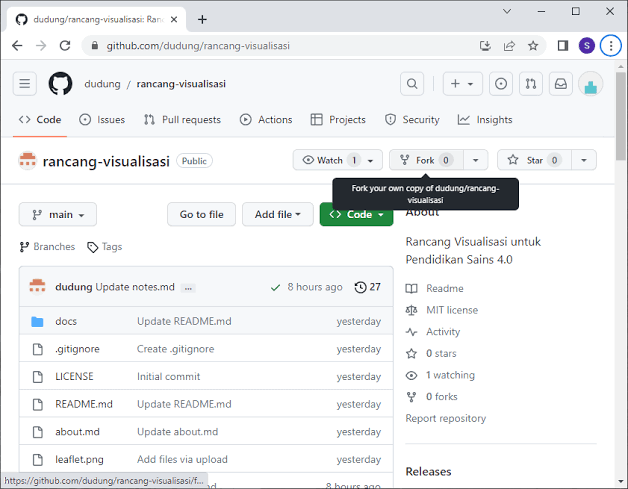Git Collaboration Unleashed: Sharing and Updating Projects

Idris
Posted on December 30, 2023

Welcome to the dynamic realm of Git, where collaboration is not just a feature; it's the heartbeat of software development. In this blog, we'll embark on a journey through the intricacies of sharing and updating projects, exploring how Git facilitates seamless collaboration among developers.
Sharing Projects: The Git Social Network
Git transforms coding into a social experience, allowing developers to share their work with the world. Whether you're contributing to an open-source project or collaborating with a team, understanding the art of sharing is key.
1. Cloning a Repository: The Grand Entrance
What is Cloning?
Cloning is the process of creating a local copy of a remote repository. It's akin to entering a grand theater to watch a performance—you get your own front-row seat to the code show.
How to Clone:
git clone <repository_url>
2. Forking: The Invitation to Contribute
What is Forking?
Forking is like receiving a personalized invitation to contribute. It creates a copy of someone else's repository under your GitHub account, allowing you to make changes without altering the original.
How to Fork:
- Click the "Fork" button on GitHub.
- Clone your forked repository locally.
3. Pull Requests: The Collaboration Ballet
What is a Pull Request (PR)?
A PR is the elegant ballet of collaboration. It's a proposal to merge changes from one branch (or fork) into another. Think of it as extending an invitation to have your code featured in the main performance.
How to Create a Pull Request:
- Make changes in a new branch.
- Push the branch to your forked repository.
- Create a PR on GitHub.
Updating Projects: The Synchronized Symphony
As projects evolve, keeping your local copy up-to-date is crucial. Git provides tools to synchronize your work with the latest changes from the remote repository.
1. Fetching Changes: The Scouting Mission
What is Fetching?
Fetching is like sending scouts to the remote repository to see what's new without making any changes to your local files.
How to Fetch:
git fetch
2. Pulling Changes: The Grand Reveal
What is Pulling?
Pulling is the grand reveal—bringing the changes from the remote repository to your local copy.
How to Pull:
git pull
3. Resolving Conflicts: The Code Diplomacy
Conflicts arise when your changes clash with those made by others. Resolving conflicts is like diplomatic negotiations to ensure a harmonious merge.
Conclusion: The Git Collaboration Symphony
In the orchestra of software development, Git orchestrates a collaboration symphony. By mastering the art of sharing through cloning, forking, and pull requests, and staying in tune with project updates through fetching and pulling, developers become part of a harmonious collaboration that transcends geographical boundaries.
As you share and update your projects in Git, may your code collaborations be as seamless as a well-practiced performance, creating a masterpiece that resonates in the world of collaborative coding. Happy collaborating!

Posted on December 30, 2023
Join Our Newsletter. No Spam, Only the good stuff.
Sign up to receive the latest update from our blog.
Related
November 27, 2024


